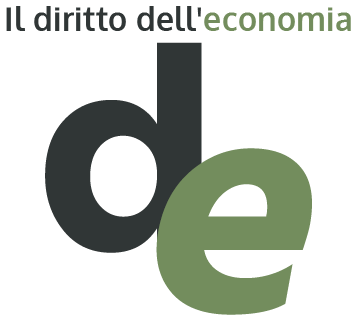Pier Giorgio Visconti – Dottorando in Diritto Commerciale, Università degli studi Roma Tre – (piergiorgio.visconti@uniroma3.it)
SOMMARIO
1. Premessa.
2. Dalla golden share al golden power.
3. Il cambio di prospettiva dell’Unione: le Comunicazioni del 2017 e il Reg. 2019/452/UE.
4. L’estensione dei poteri speciali alle reti 5G e le modifiche alla normativa italiana.
5. L’evoluzione della disciplina del golden power alla luce delle recenti crisi.
6. La vicenda oggetto di rinvio pregiudiziale ex art. 267 TFUE.
7. Cenni alla disciplina europea ed ungherese.
8. Decisione della Corte di giustizia nella causa C-106/22.
9. Conclusioni.
Il presente lavoro intende offrire una panoramica sull’evoluzione e l’estensione del golden power e, più in generale, sugli strumenti di screening degli investimenti esteri diretti in un’ottica interna ed europea. Negli ultimi anni, infatti, si è assistito ad una continua estensione di tale strumento e l’atteggiamento dell’Unione europea e delle sue Istituzioni è notevolmente mutato. Da una posizione di iniziale contrasto, come noto, si è assistito ad un progressivo allineamento, culminato nel Regolamento del 2019 e nella Comunicazione del 2022 che hanno sollecitato l’istituzione di nuovi strumenti di screening per i Paesi che ne erano sprovvisti.
Tutto ciò, perlomeno fino alla più recente sentenza della Corte di giustizia, resa nella causa C-106/22, sull’ambito di applicazione del Regolamento UE 2019/452. In particolare, sul rinvio pregiudiziale ex art. 267 TFUE, sollevato dalla Corte di Budapest, la Corte di giustizia ha avuto modo di ricordare agli Stati membri l’esistenza di limiti alla loro discrezionalità in materia di screening degli investimenti, al fine di tutelare le libertà fondamentali garantite dai Trattati.
Si avrà modo di esaminare come eventuali restrizioni alle libertà europee debbono essere interpretate restrittivamente e possono essere giustificate unicamente da esigenze di ordine pubblico, pubblica sicurezza e sanità pubblica.
Non si ha modo di sapere se questa sentenza costituisca un caso isolato o se, in prospettiva futura, rappresenti un primo revirement dell’Unione nei confronti degli strumenti di screening introdotti dagli Stati membri.
This paper aims to provide an overview of the evolution and extension of golden power and, generally, of the foreign direct investment screening tools in the Italian and European framework.
In recent years, indeed, there has been a continuous extension of such legal instrument and the attitude of the European Union and of its Institutions has changed considerably. Indeed, from an initial stance of opposition to golden power and the screening tools introduced by the Member States, there has been a progressive alignment culminating in the 2019 Regulation and the 2022 Communication urging the establishment of new screening tools for countries without them.
That is until the most recent ruling of the Court of Justice, rendered in Case C-106/22, on the scope of application of EU Regulation 2019/452. In particular, on the Budapest Court’s Article 267 TFEU reference for a preliminary ruling, the Court had occasion to remind Member States of the existence of limits to their discretion in investment screening, in order to protect the fundamental freedoms guaranteed by the Treaties.
It will be examined how any restrictions on European freedoms must be interpreted restrictively and can only be justified by requirements of public order, public security and public health.
There is no way of knowing whether this judgment is an isolated case or whether, in the future, it represents a first revirement of the Union against the screening instruments introduced by the Member States.



